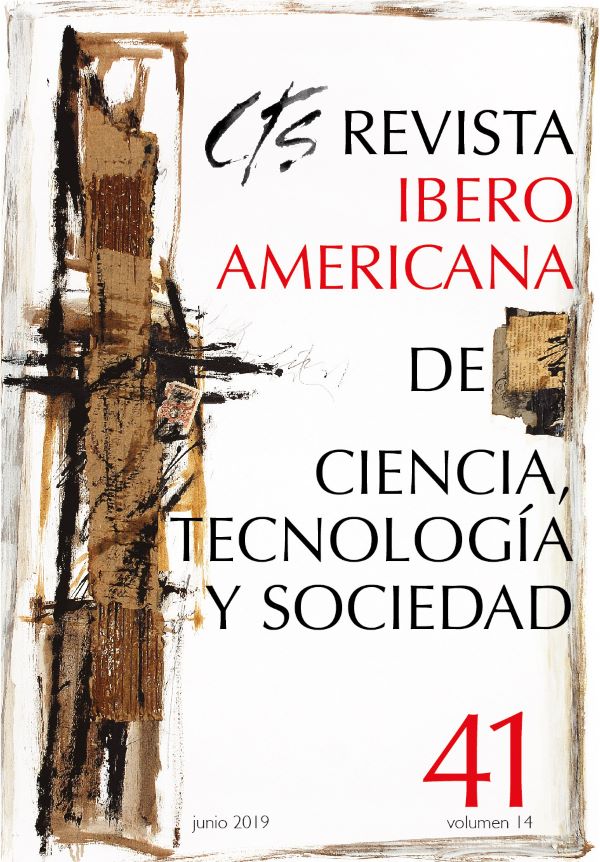Engenharias, sociedades digitais e infosfera. Uma interpretação da filosofia e a ética da informação de Luciano Floridi
Palavras-chave:
filosofia da informação, ética da informação, engenharias, infosfera, sociedadeResumo
A incidência da informatização em todas as fases de nossas formas de vida está redefinindo a concepção da realidade, dos humanos, e de suas relações e (inter)ações. Isso nos coloca diante de uma mudança de paradigma que exige novas abordagens epistémicas e ontológicas, mas também éticas e antropológicas. A ética e a filosofia da informação de Luciano Floridi tenta explicar os efeitos desta virada informacional, onde o papel das engenharias é fundamental. A infosfera é um ecossistema de atuação e relação informacional onde a diferencia entre o humano e o artificial vai se apagando. A capacidade de ação e interação de máquinas e humanos nos coloca diante da necessidade de uma reflexão onde a compreensão das tecnologias informacionais é essencial. Assim, a filosofia da informação, como filosofia para, do, e no mundo contemporâneo, deve manter um diálogo direto com as engenharias.Downloads
Referências
CLARK, A. y CHALMERS, D. J. (2010). The Extended Mind, en R. Menary (ed.): The Extended Mind, Cambridge, MIT Press, pp. 27-42.
DE BROUDEWIJN, B. y FLORIDI, L. (2017): “The Ethics of Cloud Computing”, Science and Engineering Ethics, vol. 23, pp. 21-29. DOI: 10.1007/s11948-016-9759-0.
ECHEVERRÍA, J. (2014): Innovation and Values: A European Perspective, Reno’s Center for Basque Studies, University of Nevada.
FLORIDI, L. (2007). “A Look into the Future Impact of ITC on Our Live”, The Information Society, vol. 23, n° 1, pp. 59-64. DOI: 10.1080/01972240601059094.
FLORIDI, L. (2009a): “Against Digital Ontology”, Synthese, vol. 168, pp. 151-178. DOI: 10.1007/s1129-008-9334-6.
FLORIDI, L. (2009b): “Network Ethics: Information and Business Ethics in a Networked Society”, Journal of Business Ethics, vol. 90, pp. 649-659. DOI: 10.1007/s10551-010-0598-7.
FLORIDI, L. (2010a): “Ethics After the Information Revolution”, The Cambridge Handbook of Information and Computer Ethics, Nueva York, Cambridge University Press, pp. 3-19.
FLORIDI, L. (2010c): Information. A Very Short Introduction, Nueva York, Oxford University Press.
FLORIDI, L. (2010d): “Information Ethics”, The Cambridge Handbook of Information and Computer Ethics, Nueva York, Cambridge University Press, pp. 77-100.
FLORIDI, L. (2011a): “The Informational Nature of Personal Identity”, Mind & Machines, vol. 21, pp. 549-566.
FLORIDI, L. (2011b): The Philosophy of Information, Nueva York, Oxford University Press.
FLORIDI, L. (2012): “Turing’s Three Philosophical Lessons and the Philosophy of Information”, Philosophical Transactions of Royal Society A, vol. 370, pp. 3536-3542. DOI: 10.1098/rsta.2011.0325.
FLORIDI, L. (2013a): “Distributed Morality in an Information Society”, Science and Engineering Ethics, vol. 19, pp. 727-743. DOI: 10.1007/s11948-012-9413-4.
FLORIDI, L. (2013b): The Ethics of Information, Oxford University Press.
FLORIDI, L. (2014): The Fourth Revolution. How the Infosphere is Reshaping Human Reality, Oxford University Press.
FLORIDI, L. (2015): The onlife Manifesto. Being Human in a Hyperconnected Era, Springer Open. DOI: 10.1007/978-3-319-04093-6.
FLORIDI, L. y TADDEO, M. (2016): “What is Data Ethics?”, Philosophical Transactions of Royal Society A, vol. 374. DOI: 10.1098/rsta.2016.0360.
KUHN, T. (2004): La estructura de las revoluciones científicas, Buenos Aires, FCE.
LAUDAN, L. (1981): “A Confutation of Convergent Realism”, Philosophy of Science, vol. 48, n° 1, pp. 19-49.
LYOTARD, J. F. (1987). La condición postmoderna, Madrid, Cátedra.
SHANNON, C. E. y WEAVER, W. (1971): The Mathematical Theory of Communication, Champaign, University of Illinois Press.
TADDEO, M. y FLORIDI, L. (2016): “The Debate on the Moral Responsibilities on Online Service Providers”, Science and Engineering Ethics, vol. 22, pp. 1575-1603. DOI: 10.1007/s11948-015-9734-1.
WORRALL, J. (1989): “Structural Realism: The Best of Both Worlds?”, Dialectica, vol. 43, n° 1-2, pp. 99-124. DOI: 10.1111/j.1746-8361.1989.tb00933.x
Downloads
Publicado
Como Citar
Edição
Seção
Licença
Todas os números de CTS e seus artigos individuais estão sob uma licença CC-BY.
Desde 2007, a CTS proporciona acesso livre, aberto e gratuito a todos seus conteúdos, incluídos o arquivo completo da edição quadrimestral e os diversos produtos apresentados na plataforma eletrônica. Esta decisão é baseada no entendimento de que fornecer acesso livre aos materiais publicados ajuda a ter uma maior e melhor troca de conhecimentos.
Por sua vez, em se tratando da edição quadrimestral, a revista permite aos repositórios institucionais e temáticos, bem como aos sites pessoais, o autoarquivo dos artigos na versão post-print ou versão editorial, logo após da publicação da versão definitiva de cada número e sob a condição de incorporar ao autoarquivo um link direcionado à fonte original.











